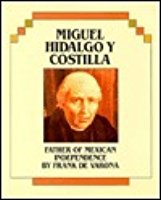 Relates the life story of the Catholic priest who became an activist in working to free Mexico from Spanish rule.
Relates the life story of the Catholic priest who became an activist in working to free Mexico from Spanish rule.
Revolution
Simon Bolivar (Hispanic Heritage)
Illustrates the exciting story of the military genius and political seer who led much of Central and South America in their successful fight for freedom from Spain.
Dancing to Freedom: The True Story of Mao’s Last Dancer
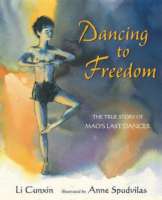
In a poor village in northern China, a small boy named Li Cunxin was given the chance of a lifetime. Selected by Chairman Mao’s officials from among millions of children to become a dancer, Li’s new life began as he left his family behind.
At the Beijing Dance Academy, days were long and difficult. Li’s hard work was rewarded when he was chosen yet again, this time to travel to America.
From there his career took flight, and he danced in cities around the world—never forgetting his family, who urged him to follow his dreams.
Open The Door To Liberty
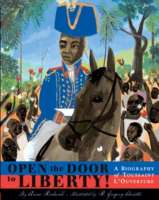
The story of revolution leader Toussaint L’Ouverture of St. Domingue (now Haiti).The island now known as Haiti was once a French colony called St. Domingue, where white plantation owners forced hundreds of thousands of African slaves to farm sugar cane. Toussaint L’Ouverture was one of those slaves . . . but not for long. The day would come when L’Ouverture would lead his island’s slaves into a revolution for freedom, and his efforts would influence the course of world history.
The Fetch
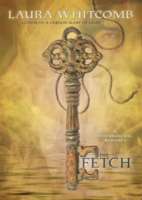
Calder is a Fetch, a death escort, the first of his kind to step from HeavenAfter 350 years as a Fetch, or death escort, Calder breaks his vows and enters the body of Rasputin, whose spirit causes rebellion in the Land of Lost Souls while Calder struggles to convey Ana and Alexis, orphaned in the Russian Revolution, to Heaven.
Voices Of Silence, The

A story about the end of communist rule in Romania and the beginning of the revolution for freedom is seen through the eyes of thirteen-year-old Flora Popescu.
Taste of Salt: A Story of Modern Haiti
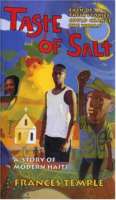
Every Life Makes a Story. Djo has a story: Once he was one of “Titid’s boys,” a vital member of Father Jean-Bertrand Aristide’s election team, fighting to overthrow military dictatorship in Haiti. Now he is barely alive, the victim of a political firebombing. Jeremie has a story: convent-educated Jeremie can climb out of the slums of Port-au-Prince, but she is torn between her mother’s hopes and her own wishes for herself and for Haiti. Father Jean-Bertrand Aristide has a story: a dream of a new Haiti, one in which every person would have a decent life, a house with a roof, clean water to drink, a good plate of rice and beans every day, anda field to work in. At Aristide’s request, Djo tells his story to Jeremie for Titid believes in the power of all of their stories to make change. As Jeremie listens to Djo, and to her own heart, she knows that they will begin a new story, one that is all their own, together.
Revolution Is Not a Dinner Party
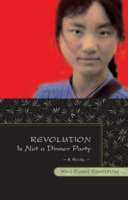
Nine-year-old Ling is comfortable; her parents are both dedicated surgeons in the best hospital in Wuhan. But when Comrade Li, one of Mao’s political officers, moves into a room in their apartment, Ling begins to witness the gradual disintegration of her world. In an atmosphere of increasing mistrust, Ling fears for the safety of her neighbors and, soon, for herself and family. Over the course of four years, Ling manages to grow and blossom, even as she suffers more horrors than many people face in a lifetime. Drawing from her childhood experience, Ying Chang Compestine brings hope and humor to this compelling story for all ages about a girl fighting to survive during the Cultural Revolution in China.
Wildly Romantic: The English Romantic Poets: The Mad, the Bad, and the Dangerous
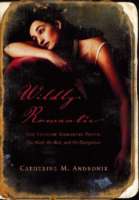
Meet the rebellious young poets who brought about a literary revolution. Rock stars may think they invented sex, drugs, and rock and roll, but the Romantic poets truly created the mold. In the early 1800s, poetry could land a person in jail. Those who tried to change the world through their poems risked notoriety—or courted it. Among the most subversive were a group of young writers known as the Romantics: Lord Byron, Percy Bysshe Shelley, Samuel Taylor Cole-ridge, William Wordsworth, and John Keats. These rebels believed poetry should express strong feelings in ordinary language, and their words changed literature forever.
Little Green: Growing Up During The Chinese Cultural Revolution
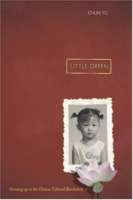
This first-person memoir tells the story of Chun Yu, who was born in a small city in China, during the Chinese Cultural Revolution. The streets were filled with roaming Red Guards, the walls were covered with slogans, and reeducation meetings were held in all workplaces. Every family faced danger and humiliation, even the youngest children. Shortly after Chun’s birth, her beloved father was sent to a peasant village in the countryside to be reeducated in the ways of Chairman Mao. Chun and her brother stayed behind with their mother, who taught in a country middle school where Mao’s Little Red Book was a part of every child’s education. Chun Yu’s young life was witness to a country in turmoil, struggle, and revolution — the only life she knew.
